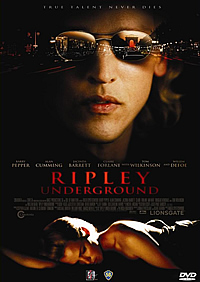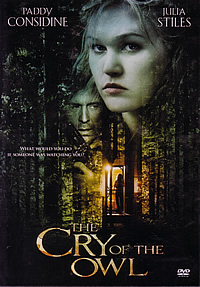A KIND OF MURDER (2016)
Genre: Drama/Thriller
Director: Andy Goddard
Cast: Patrick Wilson, Jessica Biel, Vincent Kartheiser, Haley Bennett, Eddie Marsan
Runtime: 1 hr 36 mins
Rating: PG13 (Some Coarse Language)
Released By: Shaw
Official Website:
Opening Day: 2 February 2017
Synopsis: A KIND OF MURDER, set in 1960's New York, is based on Patricia Highsmith's novel, The Blunderer. Walter Stackhouse is rich, successful and unhappily married to the beautiful but damaged Clara. His desire to be free of her feeds his obsession with Kimmel, a man suspected of brutally murdering his own wife. When Walter and Kimmel's lives become dangerously intertwined, a ruthless police detective becomes convinced he has found the murderer. But as the lines blur between innocence and intent, who, in fact, is the real killer?
Movie Review:
The late American author Patricia Highsmith’s psychological thriller novels have been the basis for many critically acclaimed Hollywood adaptations – including but not limited to Alfred Hitchcock’s classic Strangers on a Train (1951), as well as other familiar successes such as Anthony Minghella’s The Talented Mr. Ripley (1999) and Todd Haynes’ Carol (2015). Given the accomplishments of its predecessors, this latest adaptation has much to live up to. Disappointingly, however, it does not, in large due to the unevenness of its storytelling and character development.
It’s a shame because A Kind of Murder is a pretty film. Directed by Andy Goddard (best known for directing several episodes of television’s Downton Abbey), the costume and set designs are stellar, with the production team sparing no effort in exploiting the sartorial aesthetics of the 60’s. The men are decked out in fedoras, suits and trench coats, while the period dresses of the women are a visual treat – often opulent, sometimes understated but never bereft of style. The choice of colours for the costumes and the décor of the sets are deliberate and stark depending on the setting, well complementing Patrick Wilson’s role as debonair architect Walter Stackhouse. As the story progresses, his neurotic wife Clara (played by a morose Jessica Biel) grows suspicious of a new woman who shows up in their lives after a party – a certain Ellie (played by Haley Bennett) who happens to be an archetypally seductive (albeit unwittingly so) lounge singer. As the rift between husband and wife grows, so does Walter’s fascination with the case of Kimmel (played by Eddie Marsan), which he comes across in the newspapers. This leads to Walter paying a visit to the bookstore where Kimmel works; one thing leads to another and Clara eventually meets her own untimely demise. As the film increasingly flits between fleshing out Kimmel’s and Walter’s storylines, the audience are left guessing whether they were responsible for the deaths of their respective spouses. All of this unfolds while the detective Corby (played by Vincent Kartheiser of television’s Mad Men fame) is convinced of their guilt and relentlessly fights to take Kimmel and, later, Walter to task.
It is while juggling the parallel storylines that the single biggest problem with the film appears – this reviewer was often left wondering who exactly he should be rooting for. Clearly, the designated protagonist is Walter rather than Kimmel; yet for the longest time in the film, the burden is left on the audience to guess whether or not the former did indeed murder his wife. As a plot device, this doesn’t necessarily work well. If audiences are not privy to the same information that the lead character has, any tension that could have been wrought from a cat-and-mouse game with the detective is quite simply lost. And if the intention was to manufacture suspense, then the film does a fairly poor job of showing it as it struggles to balance the attention on both Kimmel and Walter’s storylines while simultaneously building up to the climax. On the other hand, neither are the audience encouraged to throw their weight behind the supposed purveyor of criminal justice – Corby the detective – who is reduced to that of a secondary role in the film. With his comparative lack of on-screen time as well as his nasty and abrasive persona, Corby’s role winds up being intensely dislikeable.
Sure, several of the classic film noir elements are in there, based on the screenplay adapted by Susan Boyd: the requisite femme fatale (in the form of Ellie), action that takes place in the shadows (without revealing too much, the climax erupts as a frenzied showdown within dim basement chambers), complex plot involving morally ambiguous characters who commit violence. But these alone are obviously not sufficient to guarantee the genre film works. For example, the femme fatale’s role in the plot feels underdeveloped, with Ellie’s relationship with Walter only being tenuously developed at best. Apart from being an inadvertent catalyst in escalating the rift between Walter and Clara (which could have been caused been anything else really, given their rocky relationship), the character of Ellie does little to propel the storyline forward.
If anything, Marsan does turn in the most commendable performance as Kimmel. With his furrowed brows and steely gaze, he portrays the bookkeeper with admirable nuance as his character’s mounting rage tips him over the edge. Working within the limitations of the material, the performances by the rest of the actors, including Wilson’s Walter, feel somewhat uninspired. Biel’s character as Clara is particularly one-dimensional and almost painful to watch – apart from appearing perpetually depressed and neurotic, she seems incapable of exhibiting other forms of emotion and when she meets her inevitable end in the film, there is little sympathy to be had.
Despite being only 95 minutes long, the film feels much more drawn-out from plodding along too tediously. It reminds one of a glass of fine wine that’s been left out on the bar counter for too long – tantalising on the outside but tasting nothing like it should.
Movie Rating:



(This kind of murder is ultimately not of the memorable kind – the film is strong on the visuals but ultimately feels somewhat vacuous as a whole, let down by uninteresting characters and an uneven build-up of suspense)
Review by Tan Yong Chia Gabriel
You might also like:

Movie Stills
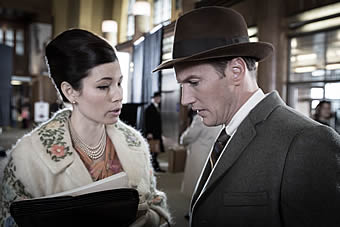
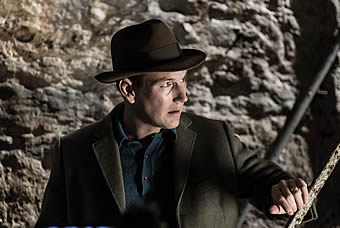
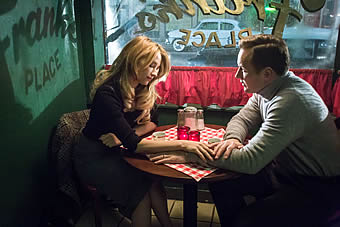
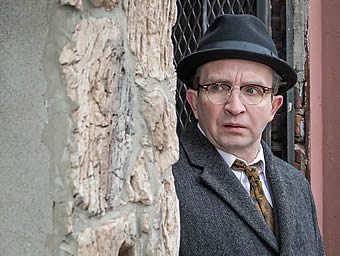

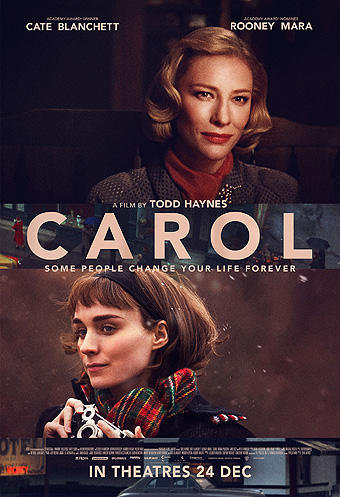
.jpg)
